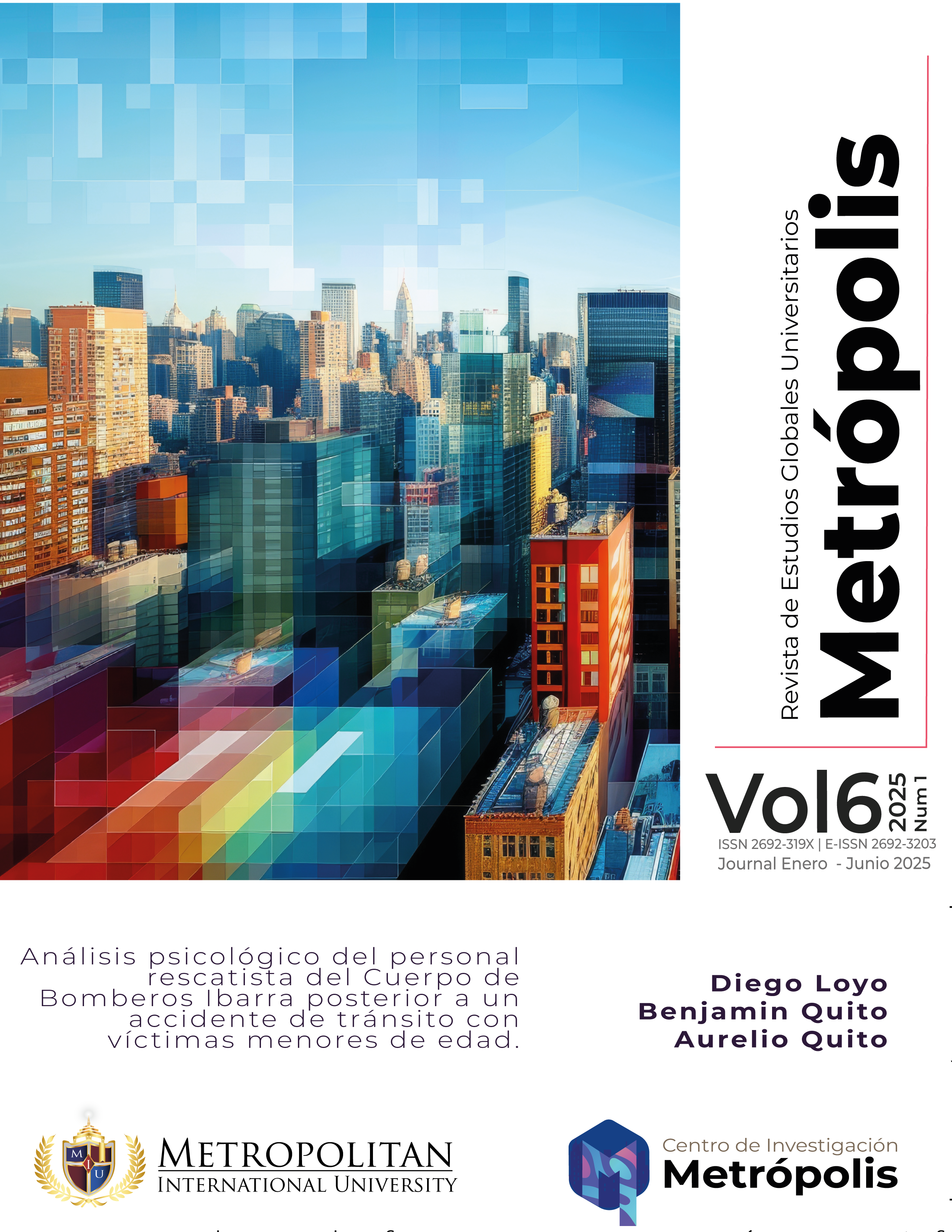Psychological analysis of the rescue personnel of the Ibarra fire department after a traffic accident with minor victims
Keywords:
Rescuer Psychology, Post-traumatic stress, Traffic accidents, Emotional Coping, FirefightersAbstract
The Ibarra Fire Department's first responders face highly emotionally impactful events, especially in traffic accidents involving minor victims. These situations can generate significant psychological consequences, such as post-traumatic stress, anxiety, and emotional exhaustion, affecting both their personal well-being and their professional performance. However, in Ecuador, there is limited research on the psychological impact of these events on firefighters, highlighting the need for further investigation into the topic. The purpose of this research is to analyze the psychological impact on Ibarra Fire Department first responders after responding to traffic accidents with child victims and to determine the coping strategies they employ to manage this impact, developing the skills and abilities necessary to respond in emergency situations. To this end, a qualitative methodology was employed, utilizing semi-structured interviews and focus groups with active first responders. Data analysis identified patterns in participants' experiences, providing a deeper understanding of the emotional consequences of their work and the effects these have. The findings of this research could contribute to the design of psychological support programs for first responders, promoting their well-being and skills, optimizing the quality of emergency services, and, above all, safeguarding their emotional state with positive attitudes toward their families and social environment. It is also hoped that this study will serve as a reference for future research on mental health applied to emergency response teams. The results were analyzed in several studies, demonstrating a relationship between resilience and post-traumatic stress, as well as between social skills and post-traumatic stress in the all.

Downloads
Published
How to Cite
Issue
Section
License

This work is licensed under a Creative Commons Attribution-NonCommercial-ShareAlike 4.0 International License.



